Topsham, Devon
EX3 0QH
Tel: 01392 878 200
Email: [email protected]
- Gallery
- Recipes & Blog
- Opening Hours
- Contact Us
- My Account
Darts Farm
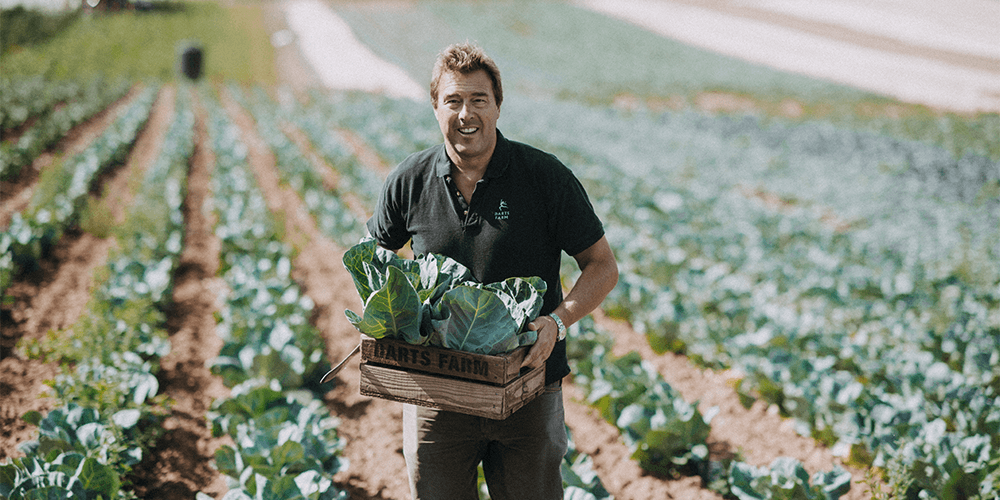
The Future of Farming
Posted in The Farm, News, Food & Drink, Seasonality on 18 Apr 2020
"To preserve our environment for generations to come, the best place to start is within our own local communities" - Michael Dart.
Michael, James and Paul Dart have been leading the local food movement over a quarter of a century. Along this journey, they have advocated that the traditional ways of doing things generate the best outcomes; for our health, our environment, our local economy and fundamentally our communities.
‘The more research that’s done into the issues of sustainability, the more it comes back to the old-fashioned ways,’ Michael says. ‘The world has gone crazy: as a result of large companies shifting production to the cheapest place - we import food, services and goods from all corners of the world – including those with dubious environmental regulations and poor working conditions. We are beginning wake up to the fact that many of our jobs have been gone abroad, along with the skills, traditions, expertise and wealth. The hidden cost here has been the demise of our local communities and the environment we live in.'
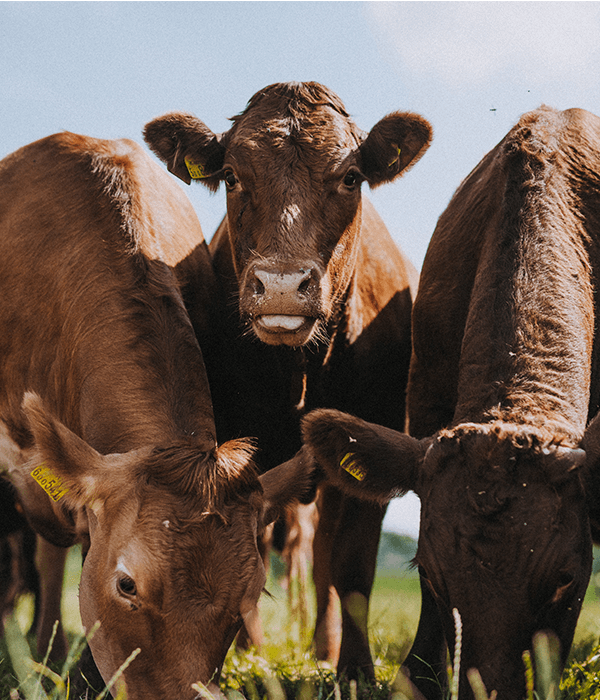
GRASS FED MEAT
In the midst of a media campaign against meat consumption, Michael is keen to highlight that it is not quite as simple as Meat = Bad and Plants = Good. ‘Whilst industrialised intensive livestock practices are making headlines for their adverse effects on our environment, the research shows that when farmed responsibly, the activities of ruminant livestock - eating, movement and bodily waste are actually fundamental to the health of our grasslands. And healthy grass possesses the unique ability to remove carbon dioxide from the atmosphere’
‘For generations, as a family, we have loved the land. And we’ve always been taught that it’s our duty, not just to protect and preserve our landscape but to encourage it to thrive. The native Ruby Red cattle you see grazing on the banks of the River Clyst play an important role in our rotation. In the winter months they are taken indoors and fed on stored grass in the form of hay and silage along with grain for protein – all of which is grown on our farm. During this time, we raise the water levels in our wetlands to encourage native and migratory wildlife to flock and flourish – if you get the chance, visit our bird hide and see for yourself, It’s stunning.’
‘When our beef reaches its natural maturity, it is hung in whole carcass form, dry-aged in the traditional way and butchered with great skill and care – all this creates unrivalled taste and texture, with nothing going to waste!’
Supermarkets have demanded cheaper meat which has resulted in specific breeds being encouraged to grow faster, be bigger and produce leaner meat. To achieve this, the cattle live their entire lives in vast sheds with restricted movement and are fed on soya and protein that’s imported from all over the world.
Michael believes that as consumers, we are becoming more conscious of where our meat comes from, how it has been farmed and the welfare and environmental credentials that come with it. If we wish to eat and live more sustainably, then switching from industrially produced meat to meat you know and trust can make a huge difference.
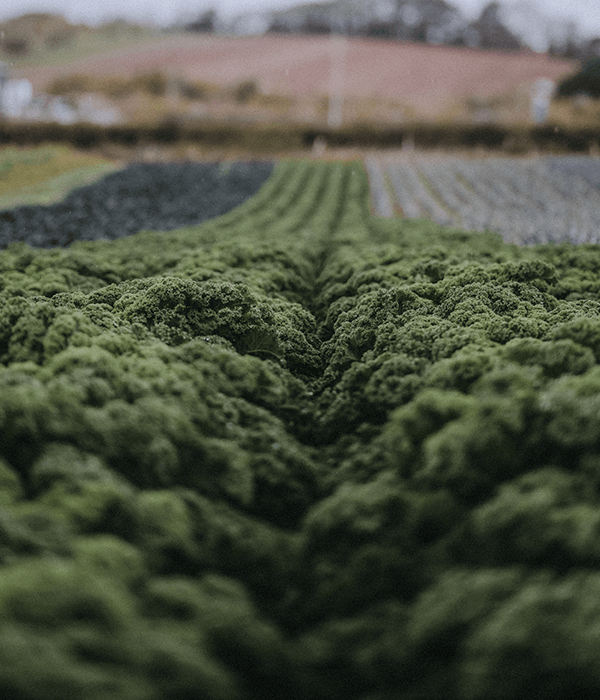 Vegan Viability
Vegan Viability
Michael believes that fresh, local and seasonal vegetables are amazing and should be celebrated in their own right.
‘Our landscape is the way it is because it has been farmed for centuries. It needs to be managed and looked after,’ he says. ‘We have been able to achieve rich pastures and thriving biodiversity through holistic land management and regenerative farming practices. Holistic land management describes the intricate relationship between livestock and the land. If we left it to grow wild, the countryside would become derelict and turn to a barren wasteland’
We have been vegetable farmers for generations, in fact our father Ronald pioneered ‘Pick-your-own’ in the 1970’s. The supermarkets predatory pricing and grading criteria have forced many vegetable farmers to give up, meaning we are one of the only few vegetable growers left in the area. However, we’re now growing more fruit and veg than ever, and its not just your typical cabbage and spuds – last year we grew chilli’s, tomatoes and even melons!
The sustainable viability of many vegan protein alternatives needs to be fully considered. We’re fast becoming aware of the negative environmental credentials associated with the mass harvesting of soy for products such as tofu, along with the voluminous irrigation and honeybee genocide that comes part in parcel with California’s almond industry. Not to mention the grip that murderous drug cartels have on the lucrative Mexican avocado industry. If you choose to eat a vegan diet, then local fruit and vegetables should be your first port of call.
It’s important that we don’t treat our soil like dirt – it is a living organism, and one that is critical to the health of our ecosystem. The result of proliferating demand for trendy ‘instagrammable’ food is often unsustainable monoculture, which itself poses a very real and sinister threat to the biodiversity of our soil.
Trendsetters and torchbearers
‘The younger generation are truly inspirational – they are really concerned about creating a more sustainable future.’
Michael looks to the younger generation, with their emphasis on preloved goods and clothing, as the torchbearers of sustainable living. ‘They grasp that fast food and fast fashion are inextricably linked by the same consumerist culture and they are innovating their way towards a sustainable future.’
‘The great thing about society is that it does start to reflect on what it does. The younger generation are operating differently: they are buying second-hand clothes, independent brands and resisting the throwaway culture.’
‘There’s a relationship between cheap food and waste – ‘bogofs and two-for-ones’. I recently read that a third of food ends up in the bin, but who wants to throw things away that are a treat? Fast food, with its single use disposable litter, poses these same problems and has created generations of people who don’t know how to cook with healthy, real ingredients.’
Faster is not necessarily better, and Michael believes that to create a healthy sustainable way of life for generations to come, everyone involved in the regional food scene – from consumer to producer - should combine the wisdom of the past with a vision of the future.
Be part of our community
Tags
- Food Hall
- Recipes
- The Farm
- News
- Awards
- Lifestyle
- Fitness & Wellbeing
- Food & Drink
- Seasonality
- Charity
- Supporting Local
- The Fish Shed
- Butchers
- The Flower Shack
- Energy Hair
- Winter Recipe
- Autumn Recipe
- Spring Recipe
- Summer Recipe
- The Farm Table
- Boxing Day Recipes
- November 2017 (1)
- July 2018 (1)
- August 2018 (1)
- August 2018 (1)
- September 2018 (1)
- September 2018 (1)
- September 2018 (1)
- September 2018 (1)
- October 2018 (1)
- October 2018 (1)
- November 2018 (1)
- November 2018 (1)
- November 2018 (1)
- December 2018 (1)
- January 2019 (1)
- January 2019 (1)
- March 2019 (1)
- March 2019 (1)
- May 2019 (1)
- May 2019 (1)
- May 2019 (1)
- May 2019 (1)
- May 2019 (1)
- May 2019 (1)
- June 2019 (1)
- June 2019 (1)
- June 2019 (1)
- June 2019 (1)
- June 2019 (1)
- June 2019 (1)
- July 2019 (1)
- July 2019 (1)
- July 2019 (1)
- July 2019 (1)
- August 2019 (1)
- September 2019 (1)
- September 2019 (1)
- October 2019 (1)
- November 2019 (1)
- November 2019 (1)
- November 2019 (1)
- December 2019 (1)
- December 2019 (1)
- December 2019 (1)
- December 2019 (1)
- December 2019 (1)
- December 2019 (1)
- December 2019 (1)
- December 2019 (1)
- December 2019 (1)
- December 2019 (1)
- December 2019 (1)
- January 2020 (1)
- January 2020 (1)
- January 2020 (1)
- January 2020 (1)
- January 2020 (1)
- January 2020 (1)
- January 2020 (1)
- January 2020 (1)
- January 2020 (1)
- January 2020 (1)
- January 2020 (1)
- January 2020 (1)
- January 2020 (1)
- January 2020 (1)
- January 2020 (1)
- January 2020 (1)
- January 2020 (1)
- January 2020 (1)
- January 2020 (1)
- January 2020 (1)
- January 2020 (1)
- January 2020 (1)
- January 2020 (1)
- February 2020 (1)
- February 2020 (1)
- February 2020 (1)
- February 2020 (1)
- February 2020 (1)
- February 2020 (1)
- February 2020 (1)
- February 2020 (1)
- February 2020 (1)
- February 2020 (1)
- March 2020 (1)
- March 2020 (1)
- March 2020 (1)
- March 2020 (1)
- March 2020 (1)
- March 2020 (1)
- April 2020 (1)
- April 2020 (1)
- April 2020 (1)
- April 2020 (1)
- April 2020 (1)
- April 2020 (1)
- April 2020 (1)
- April 2020 (1)
- April 2020 (1)
- April 2020 (1)
- April 2020 (1)
- April 2020 (1)
- May 2020 (1)
- May 2020 (1)
- May 2020 (1)
- May 2020 (1)
- May 2020 (1)
- May 2020 (1)
- May 2020 (1)
- June 2020 (1)
- June 2020 (1)
- June 2020 (1)
- June 2020 (1)
- June 2020 (1)
- June 2020 (1)
- June 2020 (1)
- June 2020 (1)
- July 2020 (1)
- July 2020 (1)
- July 2020 (1)
- July 2020 (1)
- July 2020 (1)
- July 2020 (1)
- August 2020 (1)
- August 2020 (1)
- August 2020 (1)
- August 2020 (1)
- August 2020 (1)
- August 2020 (1)
- August 2020 (1)
- September 2020 (1)
- September 2020 (1)
- September 2020 (1)
- September 2020 (1)
- September 2020 (1)
- September 2020 (1)
- September 2020 (1)
- October 2020 (1)
- October 2020 (1)
- October 2020 (1)
- October 2020 (1)
- October 2020 (1)
- November 2020 (1)
- November 2020 (1)
- December 2020 (1)
- December 2020 (1)
- December 2020 (1)
- January 2021 (1)
- January 2021 (1)
- January 2021 (1)
- February 2021 (1)
- February 2021 (1)
- March 2021 (1)
- April 2021 (1)
- May 2021 (1)
- May 2021 (1)
- May 2021 (1)
- May 2021 (1)
- May 2021 (1)
- June 2021 (1)
- June 2021 (1)
- June 2021 (1)
- June 2021 (1)
- July 2021 (1)
- July 2021 (1)
- July 2021 (1)
- July 2021 (1)
- July 2021 (1)
- August 2021 (1)
- August 2021 (1)
- August 2021 (1)
- August 2021 (1)
- September 2021 (1)
- September 2021 (1)
- September 2021 (1)
- September 2021 (1)
- October 2021 (1)
- October 2021 (1)
- December 2021 (1)
- December 2021 (1)
- December 2021 (1)
- January 2022 (1)
- January 2022 (1)
- January 2022 (1)
- January 2022 (1)
- February 2022 (1)
- February 2022 (1)
- February 2022 (1)
- February 2022 (1)
- February 2022 (1)
- February 2022 (1)
- February 2022 (1)
- February 2022 (1)
- February 2022 (1)
- February 2022 (1)
- March 2022 (1)
- March 2022 (1)
- March 2022 (1)
- April 2022 (1)
- April 2022 (1)
- May 2022 (1)
- May 2022 (3)
- May 2022 (1)
- May 2022 (1)
- May 2022 (1)
- May 2022 (1)
- May 2022 (1)
- June 2022 (1)
- July 2022 (1)
- July 2022 (1)
- August 2022 (1)
- August 2022 (1)
- September 2022 (1)
- September 2022 (1)
- September 2022 (1)
- September 2022 (1)
- September 2022 (1)
- September 2022 (1)
- October 2022 (1)
- October 2022 (1)
- October 2022 (1)
- October 2022 (1)
- October 2022 (1)
- October 2022 (1)
- October 2022 (1)
- November 2022 (1)
- November 2022 (1)
- November 2022 (1)
- November 2022 (1)
- December 2022 (1)
- December 2022 (1)
- December 2022 (1)
- December 2022 (1)
- December 2022 (1)
- December 2022 (1)
- January 2023 (1)
- January 2023 (1)
- January 2023 (1)
- February 2023 (1)
- February 2023 (1)
- April 2023 (1)
- April 2023 (1)
- April 2023 (1)
- April 2023 (1)
- April 2023 (1)
- April 2023 (1)
- April 2023 (1)
- May 2023 (1)
- May 2023 (1)
- May 2023 (1)
- May 2023 (1)
- June 2023 (1)
- June 2023 (1)
- June 2023 (1)
- June 2023 (1)
- June 2023 (1)
- July 2023 (1)
- July 2023 (1)
- July 2023 (1)
- August 2023 (1)
- August 2023 (1)
- August 2023 (1)
- August 2023 (1)
- August 2023 (1)
- September 2023 (1)
- September 2023 (1)
- October 2023 (1)
- October 2023 (1)
- October 2023 (1)
- November 2023 (1)
- November 2023 (1)
- November 2023 (1)
- November 2023 (1)
- November 2023 (1)
- December 2023 (1)
- December 2023 (1)
- December 2023 (1)
- December 2023 (1)
- January 2024 (1)
- January 2024 (1)
- January 2024 (1)
- January 2024 (1)
- January 2024 (1)
- January 2024 (1)
- January 2024 (1)
- February 2024 (1)
- February 2024 (1)
- February 2024 (1)
- February 2024 (1)
- February 2024 (1)
- February 2024 (1)
- March 2024 (1)
- March 2024 (1)
- March 2024 (1)
- March 2024 (1)
- March 2024 (1)
- March 2024 (1)
- April 2024 (1)
- April 2024 (1)
- April 2024 (1)
- April 2024 (1)
- April 2024 (1)
- May 2024 (1)
- June 2024 (1)
- July 2024 (1)
- July 2024 (1)
- July 2024 (1)
- July 2024 (1)
- August 2024 (1)
- September 2024 (1)
- October 2024 (1)
- December 2024 (1)
- December 2024 (1)
- December 2024 (1)
- December 2024 (1)
- December 2024 (1)
- December 2024 (1)
- December 2024 (1)
- January 2025 (1)
- January 2025 (1)
- January 2025 (1)
- February 2025 (1)
- February 2025 (1)
- February 2025 (1)
- February 2025 (1)
- March 2025 (1)
- March 2025 (1)
- March 2025 (1)
- March 2025 (1)
- March 2025 (1)
- April 2025 (1)
- April 2025 (1)
- April 2025 (1)
- April 2025 (1)
- April 2025 (1)
- April 2025 (1)
- April 2025 (1)
- May 2025 (1)
- May 2025 (1)
- June 2025 (1)
- June 2025 (1)
- June 2025 (1)
- June 2025 (1)
- June 2025 (1)
- June 2025 (1)
- June 2025 (1)
- June 2025 (1)
- June 2025 (1)
- June 2025 (1)
- July 2025 (1)
- July 2025 (2)
- July 2025 (1)
- July 2025 (1)
- July 2025 (1)
- July 2025 (1)
- July 2025 (1)
- July 2025 (1)
- July 2025 (1)
- July 2025 (1)
- July 2025 (1)
- July 2025 (1)
- July 2025 (1)
- August 2025 (1)
- September 2025 (1)
- September 2025 (1)
- September 2025 (1)
- October 2025 (1)
- October 2025 (1)
- October 2025 (1)
- October 2025 (1)
- October 2025 (1)
- November 2025 (1)
- November 2025 (1)
- November 2025 (1)
- November 2025 (1)
- November 2025 (1)
- November 2025 (1)
- November 2025 (1)
- November 2025 (1)
- December 2025 (1)
- December 2025 (1)
- December 2025 (1)
- December 2025 (1)
- December 2025 (1)
- December 2025 (1)
- December 2025 (1)
- December 2025 (1)
- December 2025 (1)
- January 2026 (1)
- January 2026 (1)
- January 2026 (1)
- January 2026 (1)
- January 2026 (1)
- January 2026 (1)
- January 2026 (1)
- January 2026 (1)
- January 2026 (1)
- January 2026 (1)
- January 2026 (1)
- January 2026 (1)
- January 2026 (1)
- January 2026 (1)
- February 2026 (1)
- February 2026 (1)
- February 2026 (1)
Related blog posts
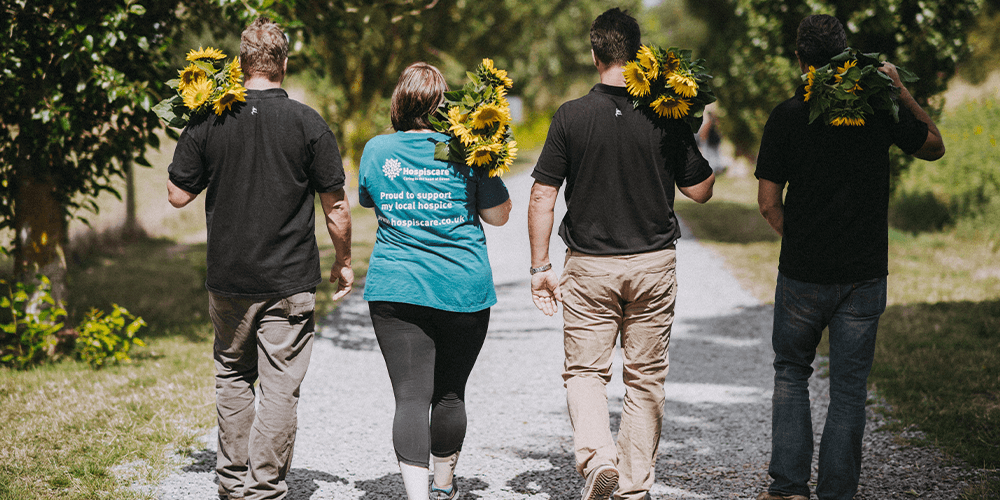
The Money You raised for Hospiscare
By picking, you've supported local flowers and local charity!
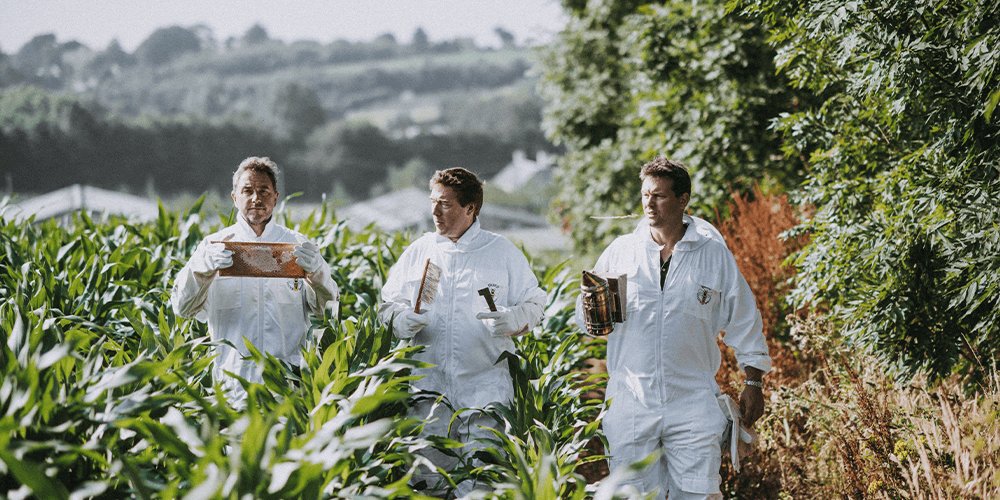
Raw Honey now available!
A super exciting announcement!

